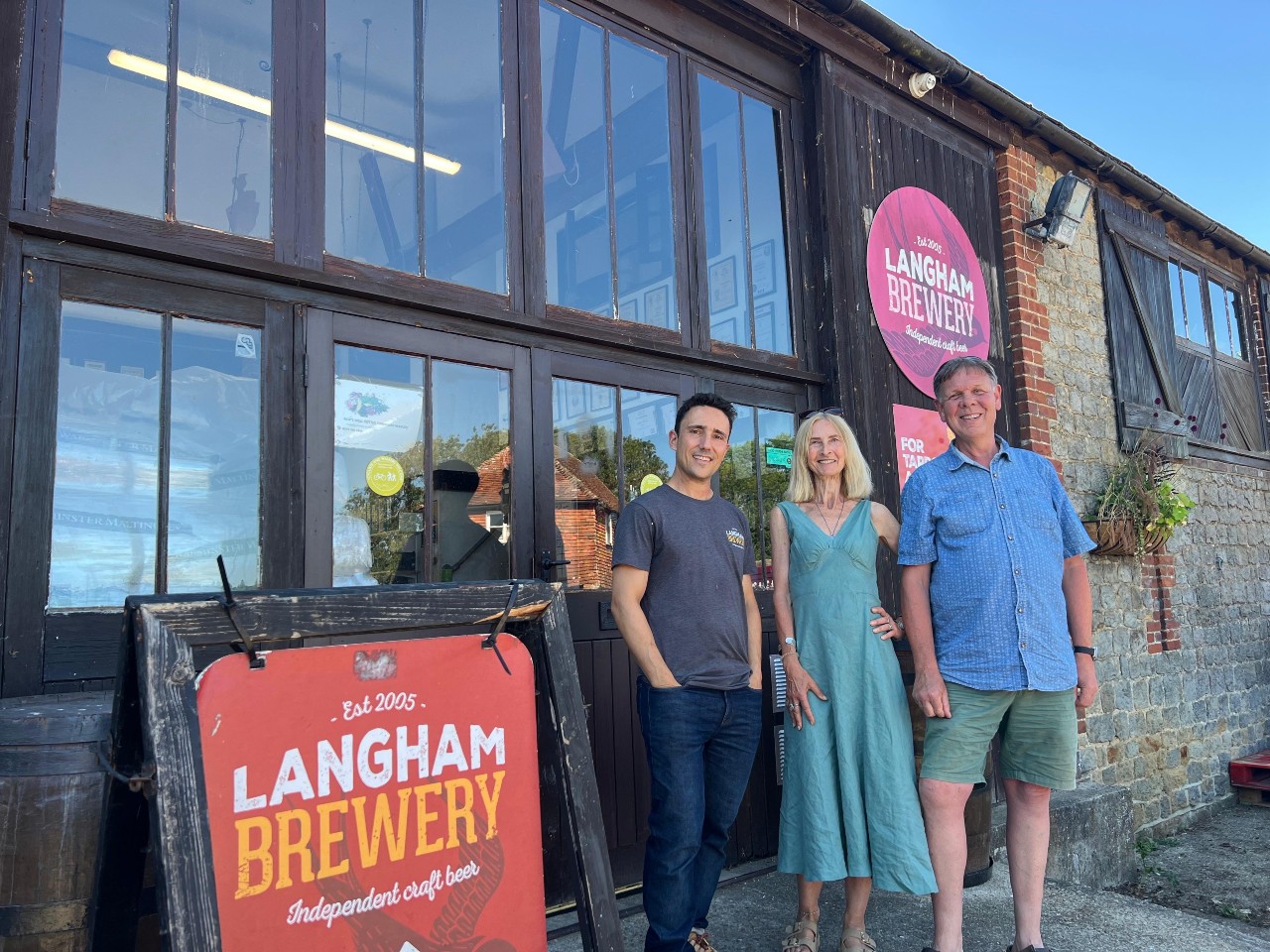A Pub for All Seasons, Adrian Tierney-Jones (Headline, £20)
Early in this elegiac book, Adrian recalls sitting in a pub garden on a warm summer day, sipping a beer and scribbling in his notebook. It brought to mind reading about Ernest Hemingway when he was living in Paris in the 1920s. When he was in funds he would go to the Brasserie Lipp on the Rue St Germain, order a strong Bock beer and a roll, and while he was sipping and nibbling he would write short stories in his notebook.
Adrian and I have a shared pleasure in pubs, beer and the life and work of Hemingway – apart from, in my case, the bull fighting. Adrian would approve of one pub visited by Hemingway when he was in London as the Dove in Hammersmith underscores the core of the book – that pubs change to reflect the passing seasons.
At the Dove there’s a roaring fire to warm the proverbial cockles in winter while in late spring or summer you can clamber on to a terrace with a glass of Fuller’s Pride or ESB and watch Old Father Thames rolling down to the mighty sea.
Adrian has encouraged me to rethink my approach to pubs. Before reading his book, seasonality for me was connected to sport. In autumn and winter it meant a pint in the Boleyn Tavern next to the former West Ham United ground while in summer I switched to the Queen’s Head in Chelmsford which serves the brilliant beers from the Crouch Vale brewery. Ian Botham and Graham Gooch are known to have downed a pint or three there after a hard day’s wafting of the willow.
Adrian brings a more measured approach. His trips round the country show that pubs change, sometimes out of all recognition, depending on the time of year.
Inclement weather prevented him getting to the pinnacle of pub pleasure, the Square and Compass in Worth Matravers, Dorset. This is an annual pilgrimage for me on summer days while on holiday in the area.
You can sit outside on benches with views over the patchwork fields to the azure sea while enjoying beer or cider and locally-made pasties. The pub draws holidaymakers like a magnet but it’s a different story in winter.
I went there some years ago with David Welsh from Ringwood when it was an independent brewery and supplied the Square. No one was sitting outside but the two main rooms were busy with locals enjoying a glass, warmed by blazing fires.
Adrian is a brilliant raconteur and on his travels he has encouraged publicans to describe how their pubs change according to the time of year: busy with visitors in the warmer times but reliant on good-hearted locals to keep the pumps busy when the days are short.
In today’s difficult times for pubs, such events and festivals as Halloween, Bonfire Night and Christmas take on an additional importance in order to keep the locals coming in.
This is more – a lot more – than just another pub guide. Interwoven with pubs, there is love, life, work, music, Dante the dog, and the joys and sadness of life. It includes a moving section on the passing of his much-missed mother.
And while he is not a door-banging campaigner like me, he does regret the way in which some once-loved beers have been mishandled by brewers. We have both traipsed the back streets of Edinburgh to the find the Oxford Bar, made famous by Ian Rankin’s Rebus crime novels.
We have failed to find Rankin in the back room, with its benches and settles, but we share our dismay at the way in which the once delicious Deuchar’s IPA has been rendered almost tasteless thanks to the clumsy cost-cutting of Heineken.
By happy and blissful coincidence, Adrian’s Grand Pub Tour starts and finishes in Southwold in Suffolk, home to Adnams Brewery. The first piece I ever wrote about beer was a visit to Adnams and the draw of the beer, the pubs, the multi-coloured beach huts, the inshore light house and the foaming sea draw me back on a regular basis. Along with the Square and Compass in Dorset, the Lord Nelson in Southwold offers exemplary beer and cheer all year round.
Adrian’s pubby peregrinations have so far not brought him to St Albans with its 50-plus hostelries. I can assure him he will find at least one pub to his taste, a place Hemingway would describe as “a clean, well-lighted place”.






